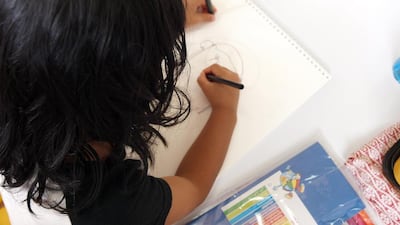The Chinese writer Lin Yutang once observed: “Of all the rights of women, the greatest is to be a mother.” This right to motherhood is indeed a blessing and a privilege. Nonetheless, it comes with tremendous responsibilities that can be a shock to even the most well-prepared women.
Being a mother is said to be the most difficult job in the world. Unlike any other job, however, there is no training, no salary, no targets and no performance appraisal. Caring mothers, whether employed outside the home or not, take this privileged role very seriously. They give tirelessly – often without appreciation or short-term results – of their time and energy to make sure their children have the best possible life.
The UAE is a fantastic story of rapid development and empowering women through education and employment opportunities. But we also need to ask whether we are empowering mothers to the same extent. Does our community really value mothers? In the Emirates we are quick to describe women by the position they hold, or by the level of the university degree they have obtained. However, it is unusual to hear a woman being described as a good mother.
One study by the Family Development Foundation found that women in the UAE spend 15 to 90 minutes per day with young children. A similar study, by the magazine 999, which is published by the Abu Dhabi Police, found that expatriate parents spend 50 minutes per day with their children during the week. I think this is a very small amount of time.
There is a stereotype of Arab or Asian women being stuck at home taking care of the house and her children. However, some studies show that women in developed countries spend much more time attending to children. In Finland, the average mother spends around five to seven hours a day with her young children. Could this be because mothers in Finland take their child-raising duties very seriously? It may also be because the government offers incentives to mothers to stay at home, and because the general community in Finland places huge importance on their role.
Some parents in the UAE may not be fully aware of the significance of early attachment in producing independent, confident young people. Some mothers may think that shuffling children between school and activities, and entertaining them is adequate for parental bonding. We need to find ways to educate and motivate new mothers to spend quality time with their children.
In the past, mothers did not have many other priorities or distractions. Today, there are many more demands on mothers and their time. They are expected to work, take care of their homes and husbands, work out and attend social gatherings. Some busy mothers may choose to leave the care of very young children to a nursery, a nanny or another family member such as a grandmother.
Many mothers in the Emirates work and UAE labour law states that maternity leave is a maximum of two months with one hour a day off for breast feeding when work recommences. In Finland, women are allowed to start maternity leave 50 days before their due date and receive a small portion of their salaries for about three years after the child is born. While parents in the UAE are busy improving their own quality of life, this is sometimes at the cost of the quality of life of our youngest family members.
To raise the profile of mothers in the UAE, we need to acknowledge the crucial role they play in early childhood development. The proximity of the child to his or her mother must be guaranteed firstly by adequate maternity leave. Adequate nurseries, neighbourhood centres and part-time work options must also be available for all mothers.
The rights of mothers and their children can only be guaranteed when husbands, families, governments and society as a whole value mothers and appreciate the hard work that they do.
The UAE is striving to become a world leader and adopt best practice in many different fields, and part of this should be to focus more on our youngest children, their development and their mothers. Our country’s biggest investment must be in our children through supporting their mothers.
Reema Marzouq Falah Al Ahbabi is an Emirati homemaker and MBA graduate

